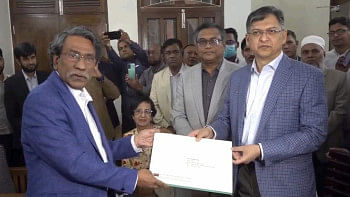Confidence deficit biggest risk to stockmarket: survey

Lack of investor confidence will be the biggest risk to the capital market this year, said 42.5 percent of the respondents in a recent survey by LankaBangla Securities.
Political stability, weak regulatory framework, intervention through frequent policy changes by regulators and weak economic conditions were also identified as risks to the capital market, according to the survey.
The survey, fourth of its kind, was conducted between January 3 last year and January 12 this year. Some 131 people responded to the survey: “Bangladesh Capital Market Sentiment Survey 2016”.
The majority, or 46.1 percent, of the participants said the capital market performance in 2015 was moderate, mainly due to the lack of investor confidence.
But 70.9 percent of the participants expect the capital market to be in better shape this year than the last.
The survey also found optimism about the market, as 65.4 percent of the respondents felt that the market may become moderately bullish in 2016.
Earnings of listed companies will act as the greatest catalyst in improving the market conditions this year, according to 41.5 percent of the respondents.
The respondents were also sceptical about the volume of market turnover: the majority -- 35.7 percent -- expect it to hover between Tk 500 crore and Tk 800 crore a day.
Over 60 percent of the respondents are expecting the pharmaceutical stocks to be the best performers this year, followed by fuel and power shares.
Some 46 percent thought the market was “too immature to absorb derivatives”.
More than half of participants felt the demutualisation of the stock exchanges has made the market more transparent and vibrant.
But 59.5 percent of the respondents emphasised improved transparency of financial reporting and other corporate disclosures, which they felt is most needed to improve investor trust and market integrity in 2016.
Some 88 percent said financial projection through equity research publication will improve the investment decision making in the market.
In addition to political instability, a lack of corporate governance and the low quality of stocks of a number of listed companies are responsible for the poor foreign investment in capital market.
On the macroeconomic front, the survey recorded a mixed opinion, with the majority saying that gross domestic product growth will remain between 6.5 percent and 6.7 percent this fiscal year. Political instability is going to be the biggest risk to Bangladesh economy this year.
They think the inflation will rise this fiscal year, the taka will appreciate against the dollar and borrowing will be even cheaper this year.
They also think that the Padma bridge project will not be completed within the stipulated time and that there is a need for improvement with regards to the food safety scenario.
The majority of the participants felt that there will be a positive impact of the fall in global crude oil prices on the Bangladesh economy, though the domestic oil prices are still very high compared to the global prices.


 For all latest news, follow The Daily Star's Google News channel.
For all latest news, follow The Daily Star's Google News channel. 



Comments